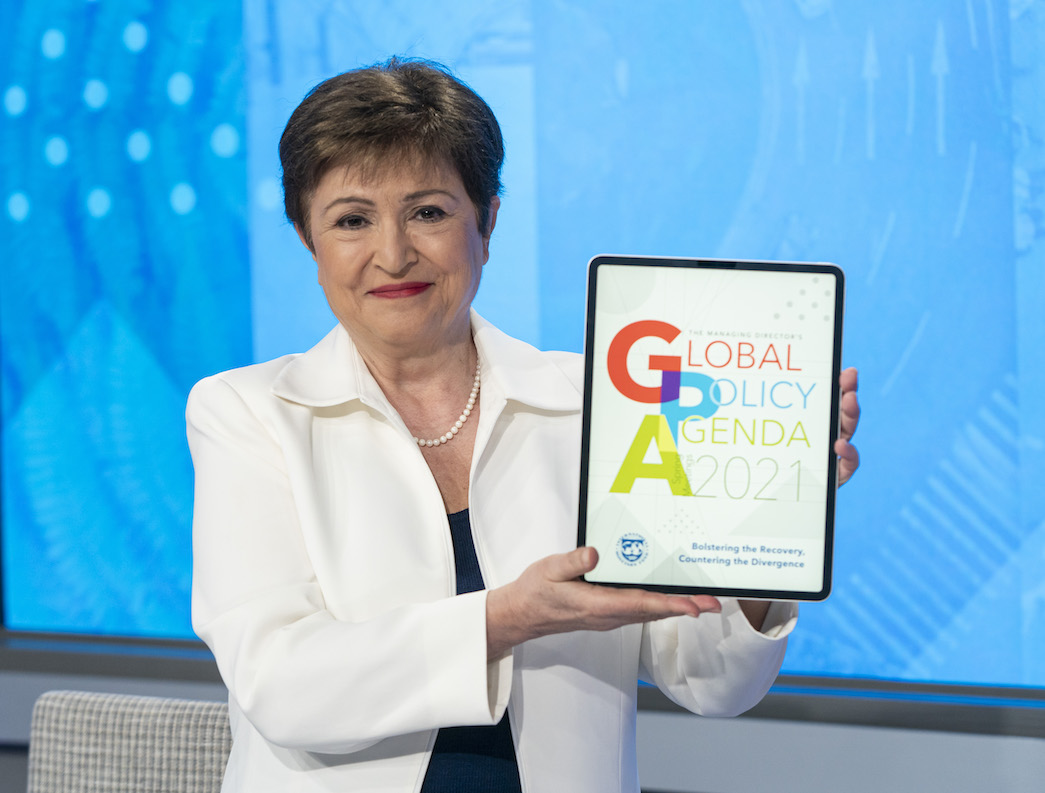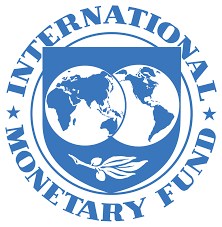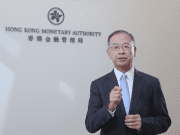IMF: United States Economy to Grow 7% in 2021, 5% in 2022
5th July 2021 | Hong Kong
The International Monetary Fund (IMF) is projecting United States economy to grow 7% in 2021 and 5% in 2022, announced by IMF’s Managing Director Kristalina Georgieva at a press briefing (1/7/21) at the United States 2021 Article IV Consultation press conference. The 7% economic growth rate in Untied States will be the fastest growth rate since 1984. View full opening remarks by IMF’s Managing Director Kristalina Georgieva below.
“ IMF: United States Economy to Grow 7% in 2021, 5% in 2022 “
United States: Vaccination, Climate Change, Global Tax (Min. 15%)

IMF’s Managing Director Kristalina Georgieva also highlighted United States leadership role in supporting global vaccination, renewed focus on reducing carbon emissions and investments in climate change. She also expressed support along 130 countries for the proposal to establish a global minimum corporate tax (15%), which will help reduce incentives to shift taxable income to low tax jurisdictions.
IMF on United States
The pandemic hit the United States hard but by mid-June 2021, over 50% of the eligible population has been fully vaccinated and both new cases and the test positivity rate have fallen markedly.
Indicators suggest significant labor market slack remains which should serve as a safety valve to dampen underlying wage and price pressures. Inflation expectations are also expected to remain well-anchored.
The unprecedented fiscal and monetary support, combined with the receding COVID-19 case numbers, should provide a substantial boost to activity in the coming months. Savings will be drawn down, demand will return for in-person services, and depleted inventories will be rebuilt.
Related:
- IMF Commends Hong Kong Financial System, Official Foreign Reserve at $494.5 Billion
- United Nations Project Economic Growth in 2021 at 5.4%, China to Grow 8.2%
- China Sets 2021 Economic Growth Rate at Above 6%
- IMF Revised 2020 Global GDP Forecast from -3% to -4.9%
- IMF 2020 Report & The Worst Recession Since the Great Depression
Links:
- View: World Economic Outlook Report – 2020 June
- View: 2020 Global Financial Stability Report (June Update)
- View: Global Financial Stability Report – 2020 April
- View: World Economic Outlook Report – 2020 June
Opening Remarks
IMF’s Managing Director Kristalina Georgieva:

IMF Photo/Joshua Roberts
7 April 2021
“We had, as you mentioned, a very useful discussion earlier today with Chair Powell and Secretary Yellen about the current state of the economy and the challenges ahead as the US emerges from the shadow of the pandemic. I would like to thank them and also thank staff of the Federal Reserve, the Treasury and other agencies for their time, for their insights over the past couple of weeks.
So, let me give you a brief summary of the main messages from the consultation. First, and that is a very good message to share. The U.S. Economy is coming out on a strong footing from the very difficult circumstances of the past year. We expect the economy to grow at 7 percent this year, the fastest annual growth rate since 1984, and continue with very strong momentum into next year. Great news for the U.S., but also really good news for the world economy.
Our outlook is based on the assumption that the American jobs plan and American families plan are both legislated later this year and in a form that is similar to that proposed by the Administration. And it is worth noting that these two packages would put in place many of the policies proposed in Article IV consultations over the past several years. So, you can imagine, we are very pleased to see the packages moving forward.
They will add to near-term demand raising GDP by a cumulative 5 1/4 percent over 2022 to 2024. And perhaps more importantly, our assessment is that GDP will be 1 percent higher even after 10 years, thanks to the significant positive effect on labor force participation and productivity introduced by these two plans. Rather than just offering a short term boost to demand. And then this demand fades away. The jobs and families plans are expected to produce a lasting improvement in income and living standards for many years to come. And in this regard, it is very welcome to see the bipartisan agreement to move forward legislation on the physical infrastructure parts of these two packages.
Today’s agreement in the House is an important step forward.
I am particularly impressed and so are my colleagues by the Administration’s commitment to strengthen social safety nets and increase the progressivity of the tax system. We know that the burden of the pandemic has been borne disproportionately by the poor, by women, by minority households. Many of the proposed policies, including paid family leave, refundable child tax credit, support for childcare and healthcare, investments in education, higher minimum wage, will directly support working mothers. They would help markedly Black and Hispanic families and boost participation in the labor market. Second, we are cognizant of the vibrant policy debate about inflation in the US. And I’m sure this is top of mind for many of you on this call. Certainly, we have seen large consumer price movements in recent months, and we think that those fairly high inflation readings will continue for a few months. I want to emphasize, however, that the evidence suggests that this inflation will be transitory and it is largely a product of relative price movements that are occurring as the economy rebounds from the impact of the pandemic, sometimes in a rather uneven way. Demand shoots up where our supply is still being interrupted. We estimate that core inflation, excluding volatile food and energy prices, could get close to 4 percent by the end of this year.
After those temporary factors played their role, we expect inflation to be around 2.5 percent by the end of 2022. We don’t see overheating as the most likely outcome. At the same time, we cannot ignore the risk that a sustained faster rise in inflation would pass to the US and the world economy.
The introduction of the Federal Reserve’s new flexible average inflation targeting framework last August came to be very timely. It has helped policymakers negotiate the uncertainties created by the pandemic and appropriately provided significant accommodation for the economy as it recovers. It also emphasizes the importance of communication and forward guidance in shaping both inflation and inflation expectations.
We believe the Fed has been clear in communicating its intentions, and we anticipate that such transparent and proactive communications will continue as asset purchases are scaled back and eventually as interest rates move upwards.
This matters for sustaining robust growth in the United States, as well as for the impact interest rates in the United States have on the world economy, especially on countries with high levels of dollar denominated debt.
Now, that takes me to my third point, the US’s leadership in seeking multilateral solutions to the world’s most pressing challenges. I welcome wholeheartedly the U.S. Administration’s effort to provide vaccine assistance to a broad range of countries, and its support for the proposed new SDRs allocation. I also would like to express support for the proposal to establish a global minimum corporate tax, which will help reduce incentives to shift taxable income to low tax jurisdictions. Let me join Secretary Yellen in welcoming the widespread support among 130 countries for this plan.
On trade, our discussions revealed the Administration’s commitment to an open, transparent, rules-based international system. We are also supportive of the Administration’s priority to ensure that trade creates tangible benefits for the American people. We do not think that these two objectives are in conflict. Indeed, actually, we believe that with the ongoing efforts to increase productivity, make the US more competitive, a rolling back of recent trade restrictions and tariffs, as well as a level playing field in federal procurement, will be important forces to create good, well-paying jobs and to strengthen living standards in the U.S.
And finally, I want to welcome the administration’s renewed focus on reducing carbon emissions and to boost investments in climate change mitigation and adaptation. No question US leadership in this area is critical for the well-being of our planet and for our future. Proposed spending on green infrastructure, efforts to remove fossil fuel subsidies, very vital, valuable steps going forward and more will have to follow. In this consultation, we have particularly argued for a greater focus on curbing emissions in the agriculture sector and for pricing carbon best done through a federal carbon tax for the benefits of jobs and growth in the US and for the goal of addressing the global climate challenge. These are my introductory comments, and I look very much forward to your questions. “
About IMF

The IMF was conceived in July 1944 at the United Nations Bretton Woods Conference in New Hampshire, United States. The 44 countries in attendance sought to build a framework for international economic cooperation and avoid repeating the competitive currency devaluations that contributed to the Great Depression of the 1930s.
The IMF’s primary mission is to ensure the stability of the international monetary system—the system of exchange rates and international payments that enables countries and their citizens to transact with each other.
Visit: IMF
Sign Up / Register
Caproasia Users
- Manage $20 million to $3 billion of assets
- Invest $3 million to $300 million
- Advise institutions, billionaires, UHNWs & HNWs
Caproasia Platforms | 11,000 Investors & Advisors
- Caproasia.com
- Caproasia Access
- Caproasia Events
- The Financial Centre | Find Services
- Membership
- Family Office Circle
- Professional Investor Circle
- Investor Relations Network
Monthly Roundtable & Networking
Family Office Programs
The 2025 Investment Day
- March - Hong Kong
- March - Singapore
- July - Hong Kong
- July - Singapore
- Sept- Hong Kong
- Sept - Singapore
- Oct- Hong Kong
- Nov - Singapore
- Visit: The Investment Day | Register: Click here
Caproasia Summits
- The Institutional Investor Summit
- The Investment / Alternatives Summit
- The Private Wealth Summit
- The Family Office Summit
- The CEO & Entrepreneur Summit
- The Capital Markets Summit
- The ESG / Sustainable Investment Summit





































